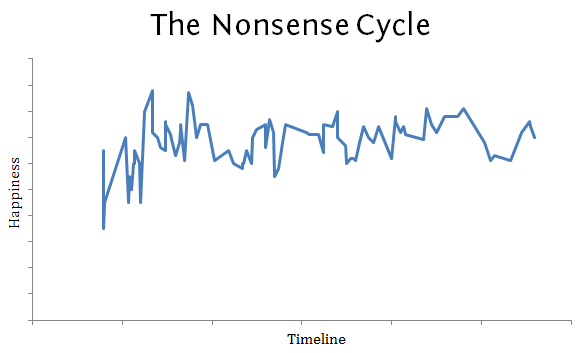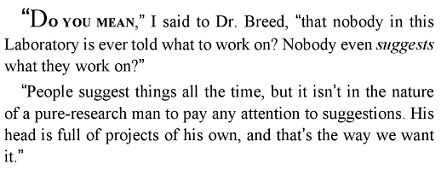Journals are awesome, but RogerHub is not a journal. In journals, people write about things and people in their life. In contrast, RogerHub is about ideas, not people, with the exception of our generous King Zuckerberg. All the great persons of the past kept diaries and journals. They handwrote when they had paper, typed when they had typewriters, and now, they do this weird video-log and blogging stuff. If a blog is supposed to be a journal, it’s not very good one. Journals are supposed to be private, so you can bash whomever you’d like and swear all you want. You can’t confess these things on a blog because they are too offensive or controversial. To correct for this, I’ve been keeping another journal on the side. I trust this journal, not to the soft earth in the backyard, nor to a key and lock, but to cryptography. I trust cryptography more than I trust myself.
Because I like to apply data visualization to everything, I have graphed my “happiness”, so to speak, versus time, for the past 3 months. I hypothesized that it would come out like a sine graph, with no general trend. It turns out, my cycle of nonsense does roughly follow the model.

This journal really is something else. It helps me organize my thoughts and collect memories, and because I trust it so much, it takes over the journal roles of blogging, which until this year, were handled to an extent by RogerHub as well. At one point, I had an idea for a startup that involved this journal idea. Since modern peoples are so dependent on technology, I could have a “How are you feeling today?” scale from zero to a hundred that would record your level of happiness periodically for several months. Once in a while, when you’re curious, you could see data visualizations of your happiness. You could make annotations on the data and export it to social networking. Then, I would package mobile apps and store data centrally with the same password-dependent security solutions that are involved in my encrypted journal.
But, people are rather good at keeping track of this data themselves. Eventually, all my startup ideas turn out like this:

(I’m reading Cat’s Cradle for my EE, possibly.)
I call this the Nonsense Cycle because, honestly, it still makes no sense to me. My situation hasn’t changed. My grades haven’t changed. Still, the marker goes up and down. Perhaps it’s the weather, or something like Keynesian animal spirits. Nonetheless, it’s undeniable that blogging on RogerHub makes it go upward.







